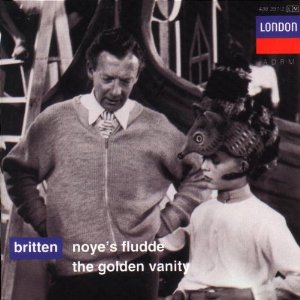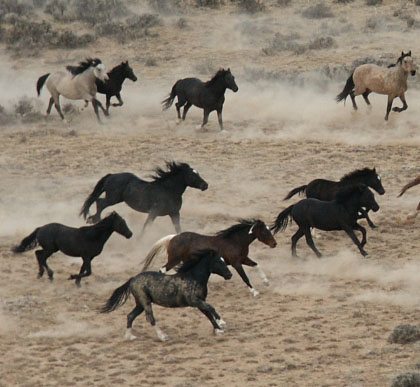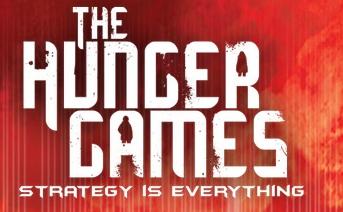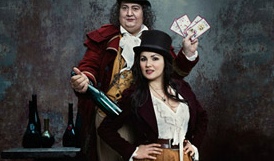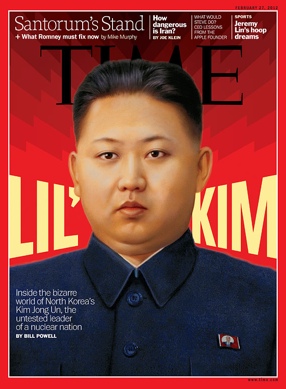(Writing this on Tuesday night.) Because I have the first session of my next branding workshop tomorrow, I won't have time to write the next installment of my posts about how to build a young audience. Which would be -- will be -- about how the repertoire we play needs to change. But here's an addition to yesterday's post about making people feel excited and involved. It's an email I and many others got from Anastasia Tsioulcas, about a project she's part of at NPR, where she works. It speaks for itself, so I'll just reprint it … [Read more...]
The great change
In my last post, I said that classical music needs a huge change. And the change will have to be radical. Classical music needs to lose its sense of entitlement, the belief many of us in the classical music world have that classical music is supremely important, necessary for any civilized society, and therefore has to be supported -- financially, by our schools, and in many other ways. To see why I think this, go back a generation or two or three, let's say to the 1940s and '50s. Classical music, back then, had a working ecosystem. It was … [Read more...]
A wild time
It's a wild time for classical music. That's the headline on my home page. And it's the opening sentence of the revised and final version of my book. Why is this a wild time? First because of the classical music crisis -- declining ticket sales, a shortage of funding, an aging, shrinking audience, all these things we've talked about for so many years. And, of course, lying behind all that, there's the sense we've all had that classical music -- at least for the past generation -- has been growing more distant from the rest of our … [Read more...]
Branding workshop success
I've blogged a lot here about the online workshops on branding I was going to teach. But now the first one has happened, and it was an enormous success, more so than I'd ever dreamed. I worked with six people, from various walks of classical music life, and by the end of the third and last session, all of them felt they'd made enormous strides in their branding. I thought they did, too. It was heartening, for instance, to see someone with an impenetrable website emerge as a vibrant, irresistible musician and storyteller. And to see him (once … [Read more...]
Marketing the Met — a real strategy
Maybe my last post -- about the new-audience strategy I don't think the Met Opera has -- looked a little theoretical. Or impractical. Or way out in left field. The Met's strategy, I said, evidently is to create buzz, and then hope the audience shows up. Instead, I said, they should go out and actively find their new audience, and then work overtime to keep the people they reach excited about what the Met does. Left field? Not at all. Just look at a New York Times story on the marketing campaign for the Hunger Games film! It's jaw-dropping. … [Read more...]
Peter Gelb and the missing strategy
Much has been written, and rightly so, about Peter Gelb's folly -- his moves to censor writing that strongly critiques his reign at the Met. As I'm sure most of us know, Peter got so much protest that he had to reverse himself. And there's much to discuss here. My take -- beyond all the strong points my wife made in her blog post (where my first link takes you) -- goes beyond the perils of suppressing discussion. What I'm wondering is whether, despite all his famous innovations, Peter really has a strategy for moving the Met into the future. … [Read more...]
Let’s trust our supporters
I'm amazed, truly amazed, at some of the pushback my recent posts have gotten. And maybe what amazes me most is the idea that we're going to hurt orchestras -- and all of classical music -- by talking about things that might be bad news for the field. Such as financial trouble, or declining ticket sales. Why do people say that talking about bad news will hurt us? Because -- allegedly -- it will scare away our supporters, especially those who give us money. Amazing. If we believe that, then we believe: (a) that our supporters (ticket … [Read more...]
Colorado Bold
A while ago I blogged about the Colorado Symphony, and its bold plan to remake itself. It had to remake itself because it was running out of money, and to describe the bold plan, the Denver Post used these words: [T]he CSO plans to undergo nothing less than a complete culture change that rejects music-making offered with "little thought as to whether it truly was of interest and relevancy to a large part of the community" and plays up relaxed, consumer-friendly performances that meet audiences on their own terms and in their own towns. I … [Read more...]
Respecting the culture
I already said much of what follows, in my post about Alec Baldwin's favorite records. But it needs saying again. It's crucial for classical music's future. Remember the commandment: Respect the culture we find outside classical music. So let's take another look at what that culture is. I was driving the other day, and listening to an NPR show about American vice-presidents, a subject it's easy to have fun with. So when the host mentioned George Clinton -- veep during Jefferson's second term -- all at once we heard music from George Clinton … [Read more...]
Alec Baldwin shows us the way
I'm going to be posting a lot about the future -- or, rather, about how to make classical music ready for the future. And, especially, how to make classical music institutions ready. A lot of what we need to think about involves the culture around us -- the culture into which classical music needs to expand, if we're going to find more audience. I know this idea isn't always welcome, but think about it. If we want to attract people who don't now listen to classical music, who are they? Clearly they're people who live in our … [Read more...]
Four keys to the future
Here, as promised, are the key things we need to do, if we're going to give classical music a future. When I wrote this, I was thinking of people who present classical performances. But I think it applies to all of us — for instance, to people who write about classical music, for whom the last point might be rejiggered as "write vividly." But enough introduction. Here's my manifesto: We’re in a new era. To adapt to it, and build a new audience, here are four things you should do: Understand and respect the culture outside classical … [Read more...]

